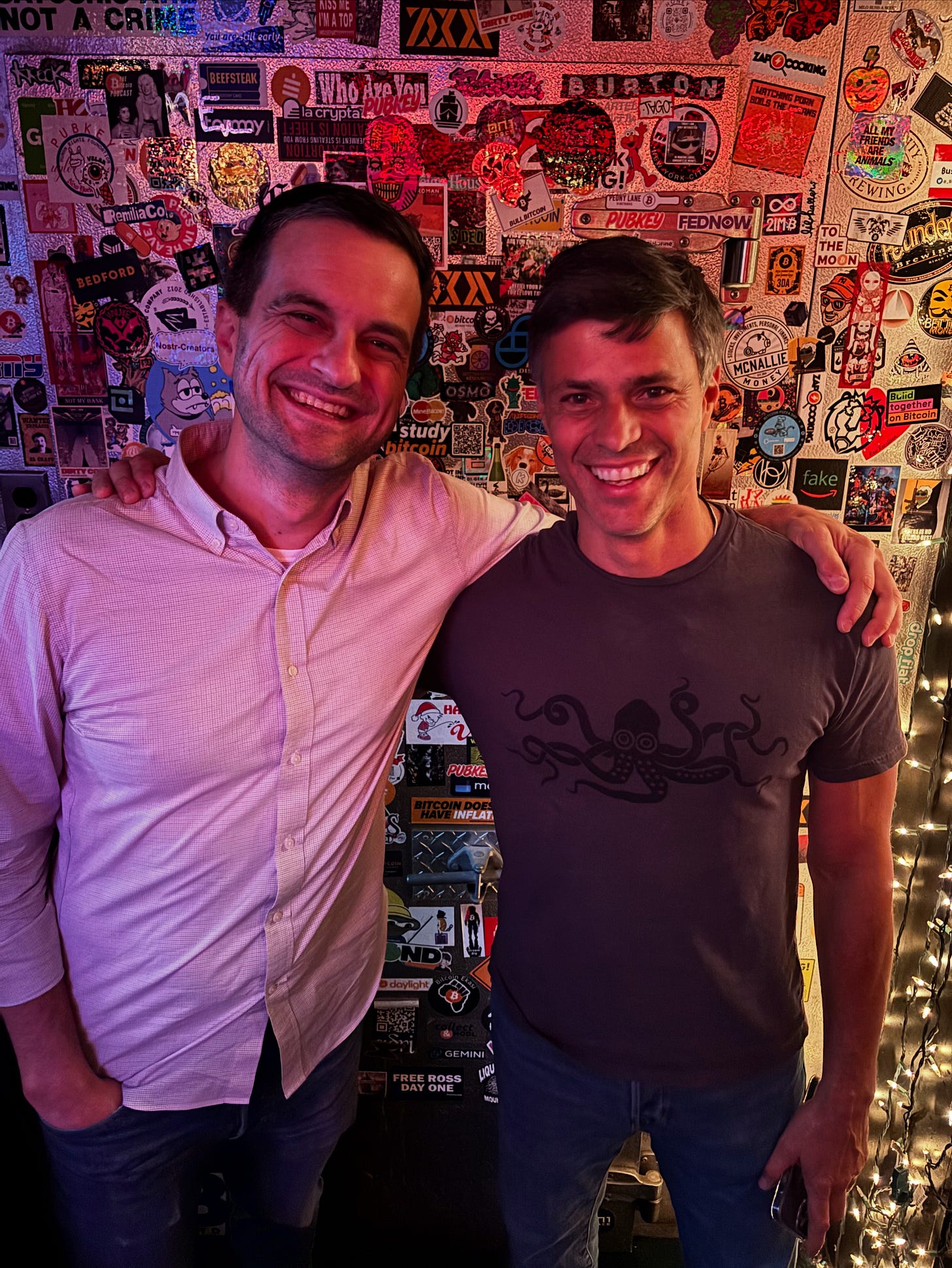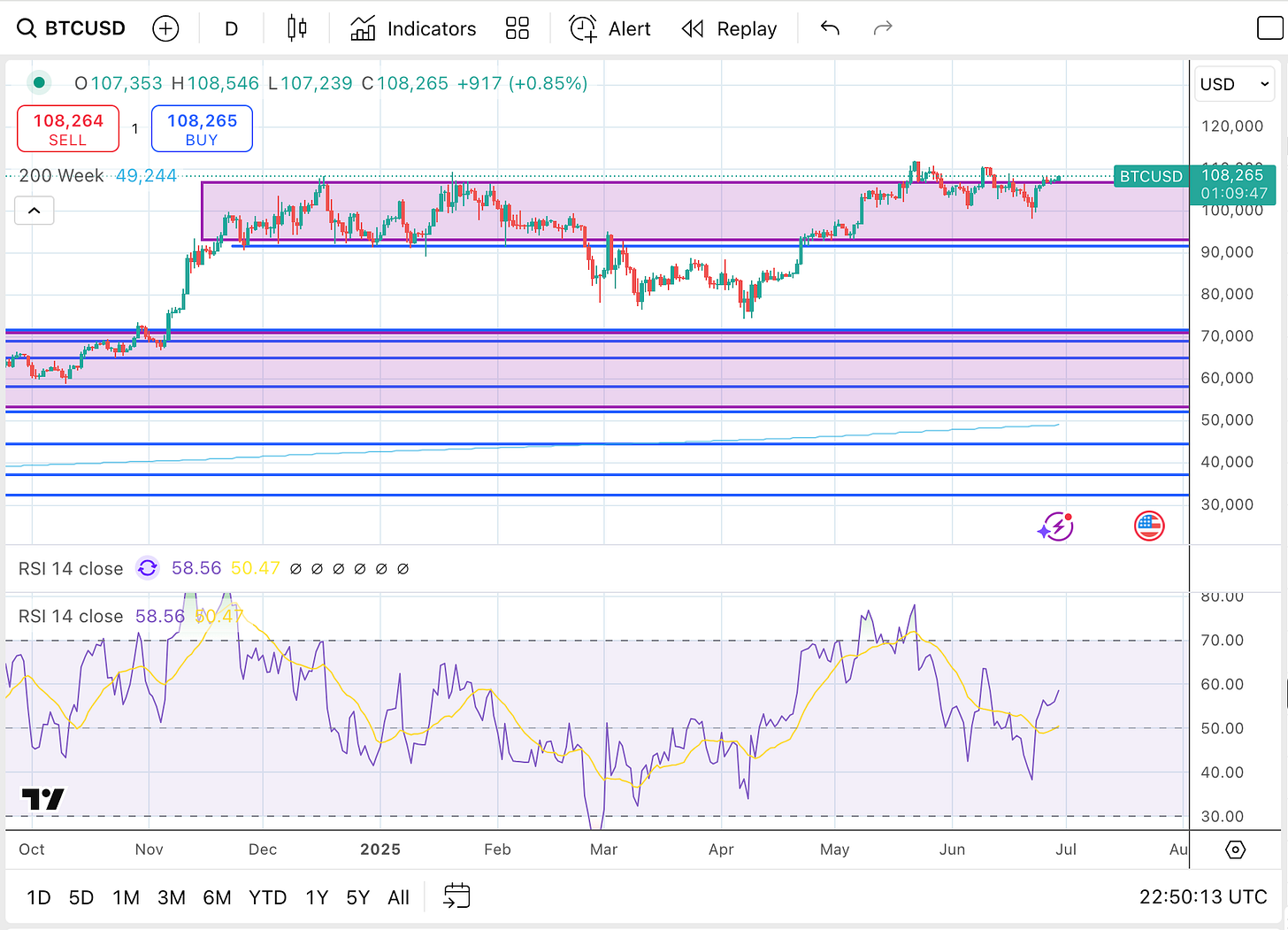Venezuelan Opposition Leader Leopoldo López Embraces Bitcoin
And NPR Continues to Lower Its Journalistic Standards
This past Friday evening, I sat down with Venezuelan opposition leader Leopoldo López for a fireside chat at NYC’s PubKey.
López, the former mayor of Caracas, has worked to unseat the authoritarian regime that has plagued Venezuela since 1999.
López and I discussed his work as mayor, the time he spent in prison for his activism efforts, and how he uses Bitcoin and stablecoins as tools to fund humanitarian work in Venezuela these days.
You can check out the full interview plus a short documentary on Leopoldo below:
NPR Continues to Lower Its Journalistic Standards
I was featured as an interviewee on NPR’s most recent episode of Planet Money (which should really be called Planet Fiat given how much they seem to loathe bitcoin).
If by chance you listened to that episode (I’m not linking to it, because I’d prefer you don’t give them the clicks or your attention), you’ll have heard me speak about how the political class in the U.S. has come to embrace Bitcoin — with little context around my quotes.
They clipped what I shared to make it fit their own anti-Bitcoin, anti-crypto, and anti-Trump narrative.
Now, I don’t mind NPR’s doing that, as all media outlets have the right to cover things as they see fit. But they surely didn’t make their angle clear to me when they interviewed me, and they conveniently left out a lot of important context that I offered, which, if included, would have challenged some of the points they made in the episode.
So, in response, I issued the following statement on X, Nostr, and LinkedIn:
Here’s what NPR didn’t share from the interviews I did with them (four in total) for the most recent episode of Planet Money:
•That while it’s awkward for most Bitcoin enthusiasts to have the political class here now, it’s better that they are here so that we can have conversations about Bitcoin out in the open with them, instead of conversations on the topic happening behind closed doors.
•That it’s a good thing that the U.S. government is no longer antagonistic toward Bitcoin, because there are activists and others living under authoritarian regimes globally who rely on bitcoin as a money of last resort, and if the U.S. is openly hostile to it, it gives more leverage to the leaders of those authoritarian regimes.
•That Bitcoin is the separation of money and state, but that doesn’t mean the state won’t have something to say about it. And that, again, it’s better that Bitcoin enthusiasts and industry leaders are at the table to have those conversations with politicians.
•(I believe I also told the reporter about the work Gridless is doing in Africa, which is incentivizing the growth of renewable energy, and that Bitcoin shouldn’t be a bipartisan issue and that some Democrats like Ro Khanna see the benefits of it, but I’m not totally sure of that.)
In total, I spoke with the reporter who interviewed me for somewhere between 20 and 30 minutes and they clipped two lines from what I said so to fit them into the narrative they wanted to craft.
While I get that this is how journalism works - that all reporters have a bias - I wanted to weigh in to let you all know that what I shared was manipulated to fit an agenda.
I used to defend NPR’s public funding, as I thought the organization served a public good, but I no longer feel that way.
If they refuse to tell the whole Bitcoin story, they no longer have my support.
(A friend of mine brought to my attention that NPR only gets about 1% of its funding from the federal government, so my final thought in the post is not really applicable.)
I now know better than to talk to the Liberal MSM about Bitcoin, and I’m saddened to have to type that out.
ADVERTISEMENT
Want me to be less sad? Learn bitcoin self custody (and tell me about how you’ve taken the initiative to do so in the comments).
Start with a Trezor Safe 3:
Digital Asset Market Structure Legislation Now!
On Tuesday, I attended a Senate Banking Digital Assets Subcommittee hearing on crypto market structure.
In the hearing, the panelists — an assortment of those in the crypto industry and digital assets specialists, including former CFTC Chair Rostin Behnam — implored the Senators present at the hearing to enact a market structure bill into law ASAP.
More in my coverage of the hearing:
Markets
Bitcoin looks like it’s climbing out of what I considered to be a zone for very light accumulation. (That’s not financial advice, nor is anything in this newsletter.)
I’d imagine it’s starting to run because President Trump is pushing hard to get the Big Beautiful Bill enacted into law.
The bill is expected to add up to $4.2 trillion to the U.S. debt by the year 2034, and it seems that the market is anticipating that it may pass. This is evidenced by this rise in the price of the hardest asset know to humankind — bitcoin. (Hard assets rise in price when fiat currencies are debased.)
That’s all I’ve got for you this week.
Thanks for reading, and here’s to an awesome week ahead!
Best,
Frank
Nostr: npub1dnzzyhmewrzkh862z7z2shwmhh5htx0rvkagepj2fkgst9ptwg3qj4x52h








